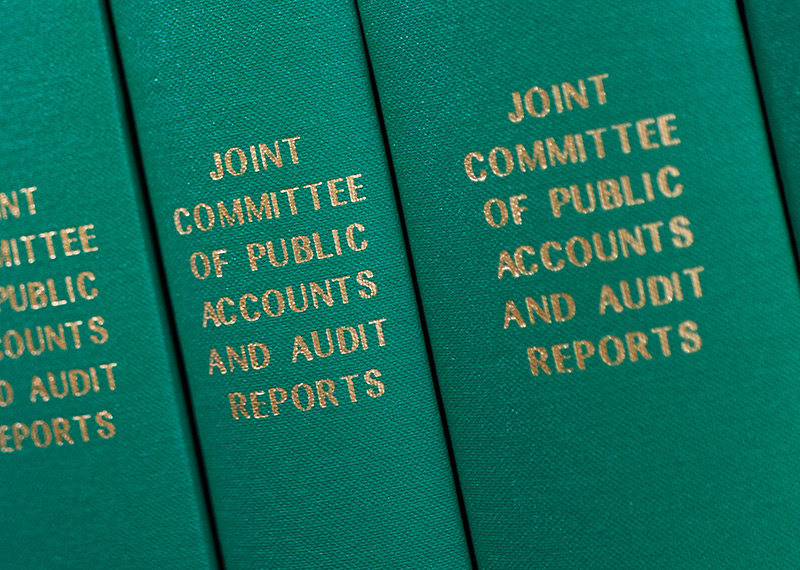Browse our range of reports and publications including performance and financial statement audit reports, assurance review reports, information reports and annual reports.
This audit would examine whether the National Anti-Corruption Commission’s (NACC) procurement activities are complying with the Commonwealth Procurement Rules and demonstrating the achievement of value for money.
Please direct enquiries through our contact page.
The VET Student Loans (VSL) program commenced on 1 January 2017 and provides income contingent loans to eligible students studying approved courses. In 2022, the program provided $222.7 million towards the cost of tuition (out of total of $235 million in total fees charged) for around 30,000 students. The design and implementation of the VSL was audited in 2018–19. This audit would assess the effectiveness of the Department of Employment and Workplace Relation’s management of the VSL program.
Please direct enquiries through our contact page.
This audit would assess the effectiveness of Defence’s management of the disposal of specialist military equipment.
At 30 June 2024, Defence reported that it manages $145.9 billion of total assets, including $88.6 billion of specialist military equipment. When one of these items is no longer suitable for or is surplus to Defence’s requirements, Defence disposes of it by either: transferring it to an Australian Government agency or another government, selling it, gifting it or destroying it. An audit would examine whether the disposal of selected equipment was conducted in accordance with Defence policy and applicable Commonwealth legislative requirements.
Please direct enquiries through our contact page.
This audit would assess whether entities’ procurement activities have been conducted in accordance with the Commonwealth Procurement Rules as applicable.
The National Intelligence Community (NIC) was officially formed in 2017 and comprises agencies from the Home Affairs, Defence, Foreign Affairs and Prime Minister and Cabinet portfolios. This audit would examine whether the procurement activities of selected NIC entities have demonstrated value for money and were appropriately managed. It would include procurements used to develop capabilities of individual NIC agencies, as well as those that are for a shared capability across the sector.
Please direct enquiries through our contact page.
The purpose of this information report is to provide transparency of, and insights on, Commonwealth entities’ self-reporting of procurement contracts on AusTender. This information report is neither an audit or assurance review and presents no conclusions or opinions. The report is presented in a variety of ways, including tables, figures, and publicly available data from public sector procurement activity recorded in AusTender.
Please direct enquiries through our contact page.
The ANAO Corporate Plan 2019–20 is the ANAO’s key strategic planning document. It guides our operating environment and sets out how we will deliver on our purpose. This Quality Assurance Framework and Plan complements the Corporate Plan. It describes the ANAO Quality Assurance Framework and reflects the ANAO’s quality assurance strategy and deliverables for the coming year.
Please direct enquiries through our contact page.
The Procedures for Determining Breaches of the (APS) Code of Conduct must be complied with in determining whether an Australian Public Service (APS) employee has breached the Code of Conduct (the Code) set out in section 13 of the Public Service Act 1999 (PS Act), and in determining what, if any, sanction is to be imposed on an APS employee who has breached the Code of Conduct.
The ANAO’s primary relationship is with the Australian Parliament, particularly the Joint Committee of Public Accounts and Audit (JCPAA).
The ANAO also has an important relationship with the accountable authorities of Commonwealth entities, who have primary responsibility for and control over public sector entities’ operations. This relationship is supported by the ongoing engagement undertaken with officials of audited entities and audit committees.
Further, the ANAO invests in a number of relationships to support its ability to be a learning organisation through the two-way exchange and sharing of information and practices, and to support other nations through peer-to-peer institutional capacity development. These relationships include the Australasian auditing community as a member of the Australasian Council of Auditors-General (ACAG). The ANAO also has close links with the international and regional auditing community through the International Organisation of Supreme Audit Institutions (INTOSAI) and its regional working groups, and contributes to the delivery of the Australian Government’s aid program in the Indo-Pacific region. The ANAO values its relationships with the Australian Accounting Standards Board (AASB) and the Auditing and Assurance Standards Board (AUASB), in their roles of setting and maintaining professional and ethical standards for the accounting and auditing professions, which underpin the delivery of quality audit services.
Please direct enquiries through our contact page.
This page lists status updates about the ANAO's progress on recommendations contained in the series of New Zealand Office of Auditor-General quality assurance review reports.
Please direct enquiries through our contact page.
The speech delivered by the Acting Deputy Auditor-General and the presentations by ANAO speakers at the Financial and Performance Reporting Forum held on Friday 29 November 2024 are now available.
If you would like a copy of the video recording please contact External.Relations@anao.gov.au
If you have any questions about the Financial and Performance Reporting Forum please contact External.Relations@anao.gov.au.

